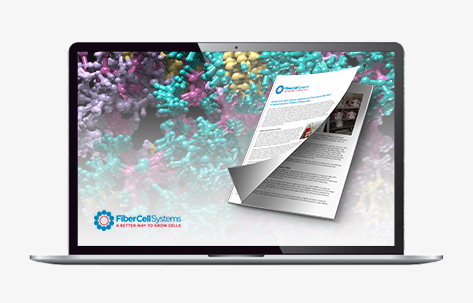
APPLICATION NOTE
Overcoming Recombinant Protein Production Barriers
3-D cell culture systems open new possibilities for recombinant protein production.


To produce recombinant proteins, scientists introduce recombinant DNA containing genes of interest into host production cells. Prokaryotic cells cannot produce fully functional, properly folded multiunit proteins or generate post-translational modifications. While mammalian cells can overcome these obstacles, they need to be cultured in physiologically-relevant conditions that are difficult to achieve with conventional 2-D culture techniques. 3-D culture systems such as hollow-fiber bioreactors (HFBRs) can recapitulate in vivo conditions with minimal user intervention.
Download this application note from FiberCell Systems to discover how HFBRs generate difficult-to-produce proteins, boost yields, and improve product consistency.